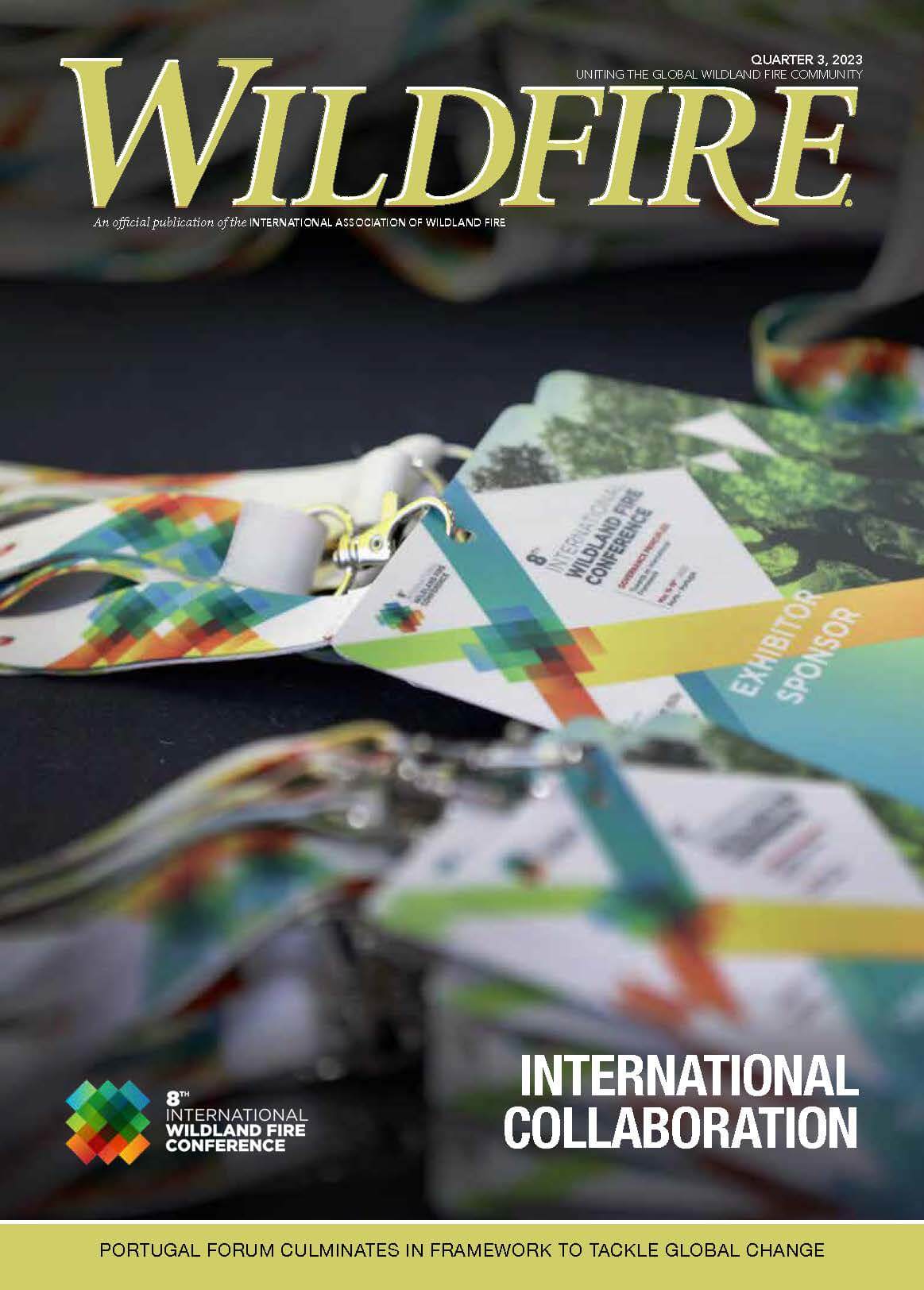IAWF welcomes four new Board Members in 2019
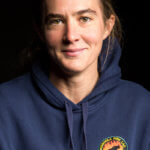
Sara McAllister. Missoula Fire Sciences Laboratory, Rocky Mountain Research Station, USDA Forest Service, Missoula MT.
Dr. McAllister has been a Research Mechanical Engineer with the U.S. Forest Service at the Missoula Fire Sciences Laboratory in Missoula, Montana since 2009. As part of the National Fire Decision Support Center, her research focuses on the underlying physics that governs wildland fire spread. Specifically, her research includes understanding the critical conditions for solid fuel ignition, flammability of live forest fuels, ignition due to convective heating, and fuel bed property effects on burning rate. She has authored a textbook on combustion fundamentals and over 70 peer-reviewed publications and conference papers. In addition to IAWF, she is an active member of the International Association of Fire Safety Science (IAFSS) and the Combustion Institute. Dr. McAllister earned her Ph.D. and M.S. in mechanical engineering at the University of California, Berkeley and her B.S. in mechanical engineering from the University of Nevada, Reno.
+
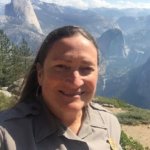
Kelly Martin, Chief of Fire and Aviation, Yosemite National Park, National Park Service, Pacific West Region, Yosemite California.
Kelly graduated from Northland College, Ashland WI with a bachelor’s degree in Outdoor Education in 1986 and completing Technical Fire Management in 1996. Kelly began her federal career as a GS-3 with the Apostle Island National Lakeshore in 1984 while attending college and has worked her way up through the wildland fire ranks for the last 34 years. Her federal wildland fire career spans the National Park Service and the US Forest Service working in 6 different states. She has worked on helicopter modules as an assistant foreman and manager; Redding Hotshot crew in 1991; fuels and prescribed fire crews as a Type 1 Complex Burn Boss, Fire Behavior Analyst on Type 1 and Type 2 teams since 2006; Operations Section Chief and Operations Branch Director since 2014; and held several career leadership positions as a Fire Management Officer (Moab, UT; Carson City, NV; Placerville, CA; Yosemite, CA) on complex fire units since 1996. Kelly is the past chair of two National Wildfire Coordinating Group (NWCG) programs: Fire Environment Committee (FENC) and the National Fire Management Leadership (M-582) course.
Kelly Martin maintains a highly diverse skill set as a field practitioner in prescribed fire and wildfire management focusing on increasing the wise use of applied fire on large fire adapted ecosystems for forest health and resiliency especially due to drought, tree mortality and climate change. Kelly is also a strong advocate for diversity, inclusion and gender parity throughout the Wildland Fire Community. Her most recent efforts include providing leadership for the Women in Fire Training Exchange (WTREX) since 2016; a highly successful grass roots program aimed at promoting practical wildland fire skills and networking opportunities for both women and men.
+

Dr. Cathelijne Stoof, Assistant Professor, Soil Geography and Landscape Group and Coordinator Wageningen Fire Centre, Wageningen University, The Netherlands
Dr. Cathelijne Stoof studies the effect of human-caused and natural disturbances on soil and water resources. She teaches about landscape and soil formation and related impacts on land use potential. In her fire research, Cathelijne combines study of fire impacts with assessment of fire risk, with an increasing focus on temperate regions like Northwest Europe.
Currently an assistant professor at Wageningen University in the Netherlands, she was previously at the Soil and Water Lab of Cornell University (USA) and worked in The Netherlands, Portugal and Australia for her PhD on fire effects on soil and hydrology. Her current research focuses on the role of plants in controlling fire impact on soil and water by affecting soil heating and ash. Cathelijne frequently communicates fire science to the general public and recently founded the Wageningen Fire Centre to promote integrated fire science collaboration between researchers and stakeholders on wildland fire challenges in The Netherlands and elsewhere.
+
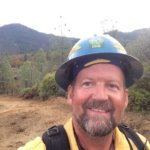
Johnny Stowe, Heritage Preserve Manager, South Carolina Prescribed Fire Council, Columbia, South Carolina
Johnny Stowe is a forester and wildlife biologist who has managed heritage preserves with prescribed fire for the South Carolina Department of Natural Resources for 23 years. He represents the department on wildland fire management, policy, education and outreach issues, and he helped form the South Carolina Prescribed Fire Council. Johnny lit his first fires 50 years ago on the family farm he still burns today. His passions and energy center on the cultural and natural heritage of prescribed fire and its connection to human ecology, on putting good-fire on-the-ground to restore and maintain the integrity of imperiled ecosystems, and on engaging and mentoring the next generation of wildland fire leaders and managers.
+
Thanks to outgoing Board Members for their dedicated service
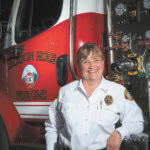
Kathy Clay, Fire Marshal, Battalion Chief, Jackson Hole Fire, Wyoming, USA
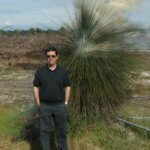
Paulo Fernandes, University of Trás-os-Montes and Alto Douro (UTAD), Dept. of Forest and Landscape, Vila Real, Portugal

Naian Liu, Professor, Fire Safety Engineering, State Key Laboratory of Fire Science (SKLFS), University of Science and Technology of China

Guillermo Rein, Senior Lecturer, Imperial College London, UK
+
IAWF Awards
At the 15th International Wildland Fire Safety Summit & 5th Human Dimensions of Wildland Fire Conference in Asheville, December 10-14, 2018, we honored two recipients of IAWF Awards.
IAWF Early Career in Fire Operations Award
The IAWF Early Career in Fire Operations Award recognizes a promising early-career professional who has demonstrated outstanding ability in any field of wildland fire operations. Early career is nominally taken to include professionals who are under 40 years of age when nominated. We are pleased to announce the 2018 Early Career in Fire Operations to Forest Schafer. Mr. Schafer is the Forest Science Management Coordinator for the California Tahoe Conservancy and also serves as the Incident Commander of the Tahoe Fire and Fuels Team,
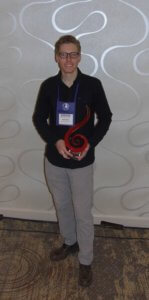
The individual who nominated shared that “Forest is known as the Swiss Army knife of the local fire service in the Lake Tahoe region, possessing a very diverse and effective skill set. In my 28 years of working on Nevada’s wildland-urban interface (WUI) issues, he is the most impressive young fire professional I’ve encountered.”
Forest’s professional accomplishments include:
- Elected by his peers and currently serving as Incident Commander of the Tahoe Fire and Fuels Team, an organization which coordinates fuel reduction, fire prevention and community engagement for 18 local, state and federal entities in the Lake Tahoe Basin
- Appointed Project Manager and Lead Editor of the Lake Tahoe Basin Community Wildfire Protection Plan. The scale of this project was immense involving the coordination of seven fire protection districts, Nevada Division of Forestry, CAL FIRE, US Forest Service and other entities.
- Appointed and serving as Chair of the Nevada Wildland Fire Cohesive Strategy ‒ Fire Adapted Community Sub-committee and authored the group’s goals and objectives document.
- Manages financial and programmatic elements of federal and non-federal grants from multiple sources.
- Fulfills a critical role as a Certified Archaeological Surveyor (i.e., necessary for environmental clearances for certain fuel treatment projects).
- Conducts fuel treatment project environmental analysis and obtains all permits required for implementation.
- Serves as GIS Specialist for the Sierra Front Type 3 Incident Management Team.
- Appointed Network Leader for the Tahoe hub of the national Fire Adapted Communities Learning Network.
- Spearheaded procurement of $30 million for “Projects to Reduce Wildfires in the Reno/Tahoe Area” via funding from the Southern Nevada Public Lands Management Act for 2017 through 2021.
- Coordinated GIS data collection for project accomplishments for the Lake Tahoe Multi-Jurisdictional Fuel Reduction and Wildfire Prevention Strategy.
- Participated in the development of the 2013 Northern Nevada amendments to the International Wildland-Urban Interface Code.
- Managed data collection, conducted analyses, and compiled maps and reports for the fire district’s ISO Public Protection Classification review.
Elwood Miller, Ph. D. and Coordinator of the Nevada Network of Fire Adapted Communities, described Forest’s worthiness to receive the Early Career for Fire Operations Award by stating, “In my fifty plus years as a forester, educator and administrator I have encountered many individuals that self-identify as a professional. These people divide into three groups; those that set the bar low and perform accordingly, those that set the bar high and deserve the respect accorded to professional performance, and finally those rare individuals who excel and establish a standard of excellence that defines the true meaning of the word professional. Forest Schafer is a member of the third group in every aspect of his service and extraordinarily productive career. The respect any award garners is directly related to the caliber of the recipients who receive it. Presenting this award to Forest Schafer would not only maintain but elevate the standard by which this honor is evaluated.”
+
IAWF Wildland Fire Safety Award
The International Association of Wildland Fire (IAWF) inaugurated the IAWF Wildland Fire Safety Award at the Association’s first Wildland Fire Safety Summit held in 1997 in Rossland, British Columbia, Canada. The award has been bestowed on twelve other individuals since that time.
The IAWF Wildland Fire Safety Award is presented to a deserving individual within the international wildland fire community who has made a significant contribution to wildland firefighter safety, either directly on the fireline; or indirectly through management, cultural changes, or through wildland fire research. Their contribution is frequently beyond their normal everyday job expectations — sometimes at the potential risk to their own career, and their example can encourage others to act in a similar manner.
Selection of the recipient is based on nominations reviewed by a committee comprised of previous award recipients and typically but not always a member of the IAWF Board of Directors.
A number of individuals were again nominated this year for the IAWF Wildland Fire Safety Award. The final selection is always a difficult one, as all the nominees are very well deserving of the award.
It is our pleasure to announce the recipient of the 2018 IAWF Wildland Fire Safety Award is Mr. Kelly Close, Battalion Chief with the Poudre Fire Authority based out of Fort Collins, Colorado.
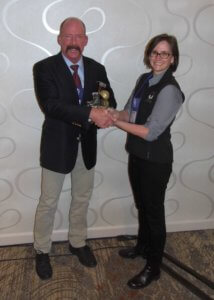
Mr. Close has worked as a firefighter for more 20 years now. During this time, he has been employed by a local government fire department in the western US that is charged with both structural and wildland fire protection responsibilities. However, his primary influence on improving wildland firefighter safety has come about as having been a fire behavior analyst or FBAN since 1999.
Among some of the most significant accomplishments of this year’s recipient of the IAWF Wildland Fire Safety Award has been:
- Serving as a serious accident investigation team member.
- Working tirelessly via various information transfer and training mediums to ensure that the lessons learned from a major fatality fire would not be lost.
- Acting as an expert witness on contentious litigation cases in the US and Australia.
- Contributions to fire behavior education and knowledge transfer as an instructor and committee member.
Kelly has demonstrated an unparalleled passion for wildland firefighter safety so as prevent fire tragedies in the future. His presentations and writings have bridged both fire behavior and human behavior in the context of decision-making in rapidly deteriorating environments.

